
Newsletter (November 2019)
In This Issue:
Medicaid Enrollment DeclineMedical-Legal Partnership Convening
Enhancing Vision for Older Montbello Residents
Specialty Care Update
Grant Updates
Colorado Gives Day
Medicaid Enrollment Decline
In the two years between August 2017 and August 2019, Medicaid enrollment in Denver dropped by almost 12%, or about 25,000 people. The decline in Medicaid-insured residents wasn’t steady – there were some peaks and valleys during this period – but the overall downward trend is very concerning for MHHA members and the safety net in general.
Through the Medicaid expansion under the Affordable Care Act, along with the “welcome mat” effect, over 100,000 new Medicaid holders enrolled in Denver, which helped cut our uninsured rate by half. These newly-enrolled now had the opportunity to access regular healthcare, as well as the additional care coordination services provided through the Colorado Access, Denver’s Regional Accountable Entity.
For safety-net providers, fewer uninsured patients meant stronger revenues. With increased resources, safety-net providers expanded capacity, programs, and services in order to deliver better care to their patient populations. These advances are at risk as Medicaid enrollment continues to fall. Furthermore, if the people dropping off Medicaid rolls are eligible-but-not-enrolled, HCPF is likely to end up paying for expensive care at emergency departments instead of at primary care practices.
The Colorado Center on Law and Policy recently released an in-depth analysis of HCPF data, noting that the “rate of decline in enrollment in Medicaid and CHIP in Colorado is more than threefold the national average.” What’s Causing Colorado’s Decline in Medicaid and CHIP Enrollment? suggests that operational and process factors contributing to the decrease include:
- Functioning of redetermination processes
- County management of validation documentation
- Obstacles to real-time eligibility
- Impact of the returned mail policy
There’s no time to waste; further erosion of Medicaid enrollment could affect the stability of the safety net, which serves many of the communities that face the greatest social and economic barriers to healthcare. Have you noticed an increase in uninsured patients? We’d like to hear from you about how it’s affecting your organization.
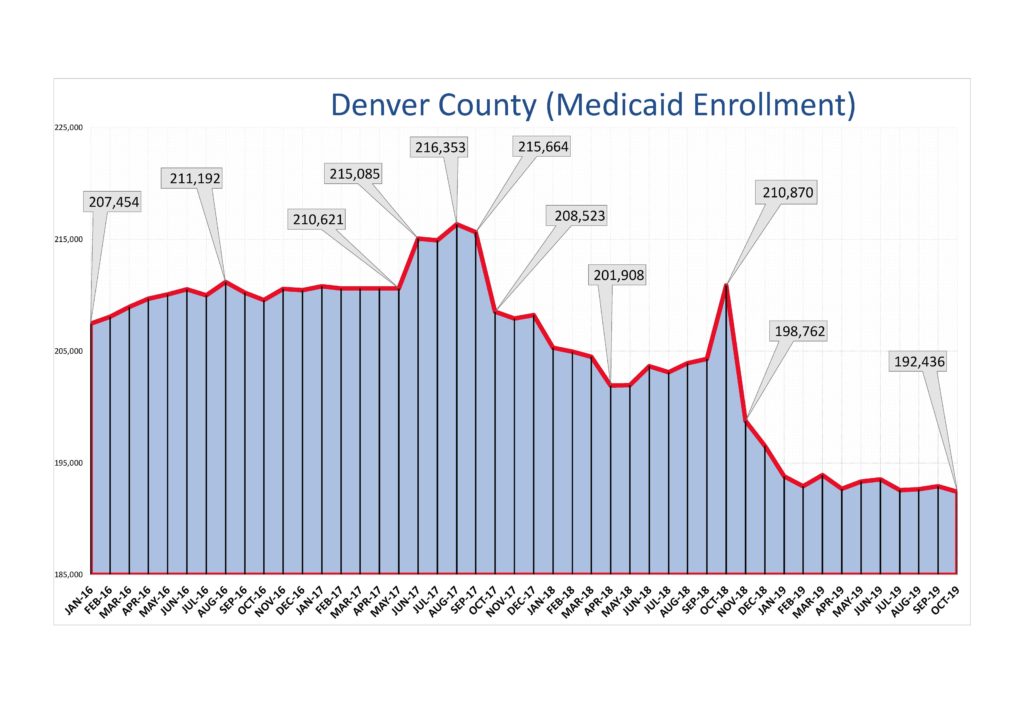
Medical-Legal Partnership Convening
This past October, MHHA hosted MLPs: Past, Present, and Future. The event itself focused on bringing together stakeholders who work with, have worked with, or are interested in working with Medical-Legal Partnerships (MLPs). The goal was to create/launch a learning community about MLPs and explore alignment on issues such as data, screening tools, sustainability, etc.
The first part of the convening featured speakers from the Health Equity Advocacy Cohort, 9to5, and a keynote speaker, Kirby Mitchell, who gave great insight into pulling together different stakeholders from South Carolina to create an MLP. The afternoon consisted of a panel with partners who are invested in MLP efforts in Denver. After the panel, attendees split into working groups. These groups discussed opportunities, challenges, and next steps for screenings tools, policy, and data/evaluation.
The convening was a resounding success. Many people remarked that they found the day useful and inspiring. It is our hope to continue this energy and conversation around MLPs with interested parties. In the new year, we are planning to bring this group back together for further discussions around working as a collaborative to sustain metro Denver’s MLPs.
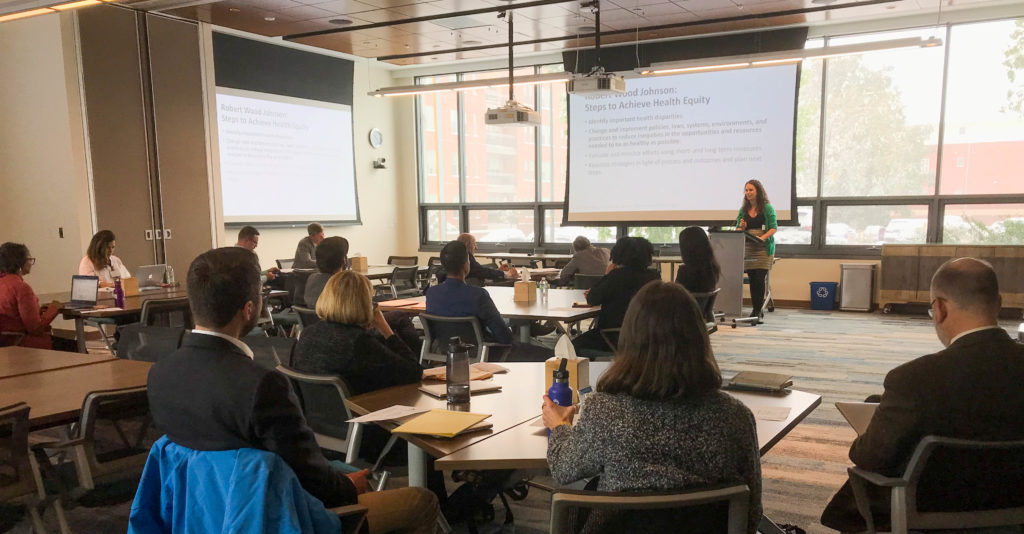
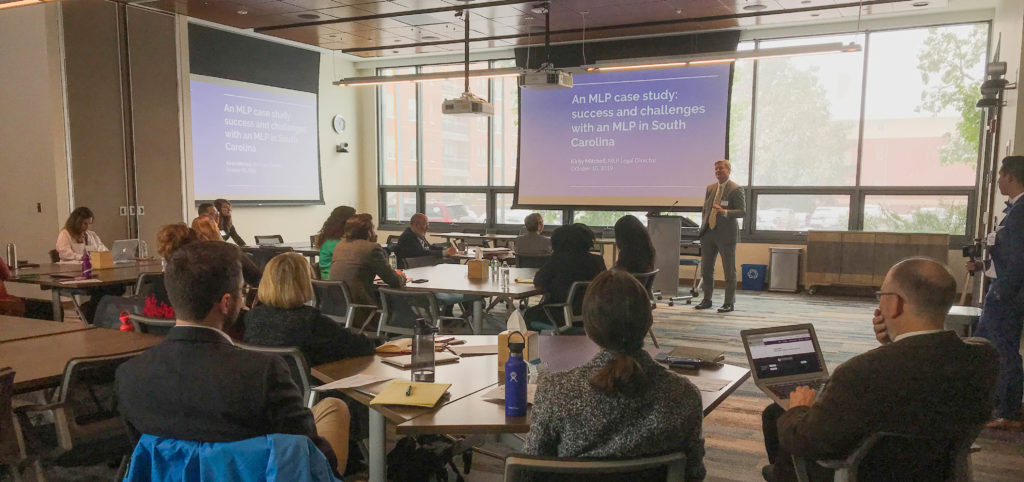
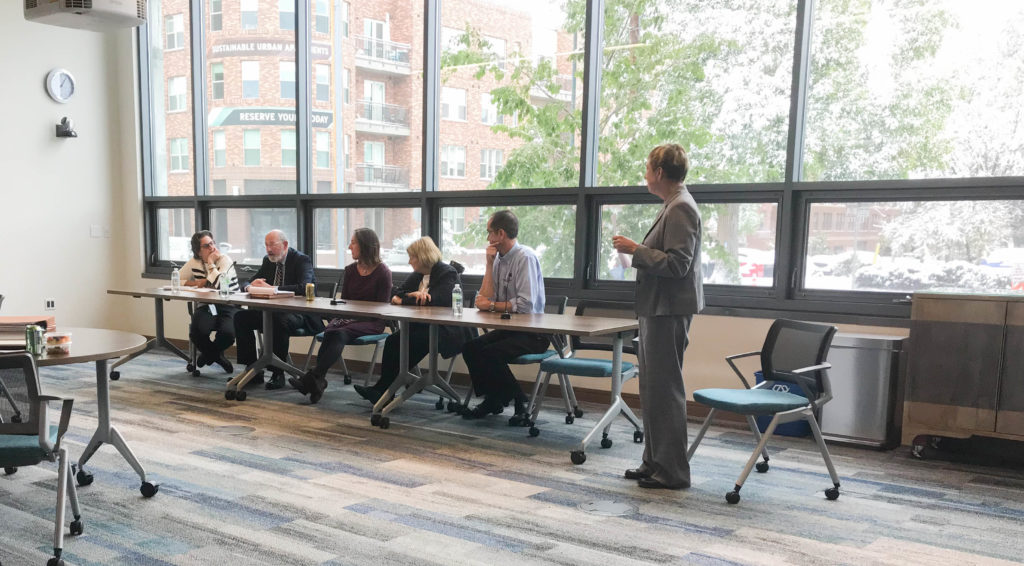
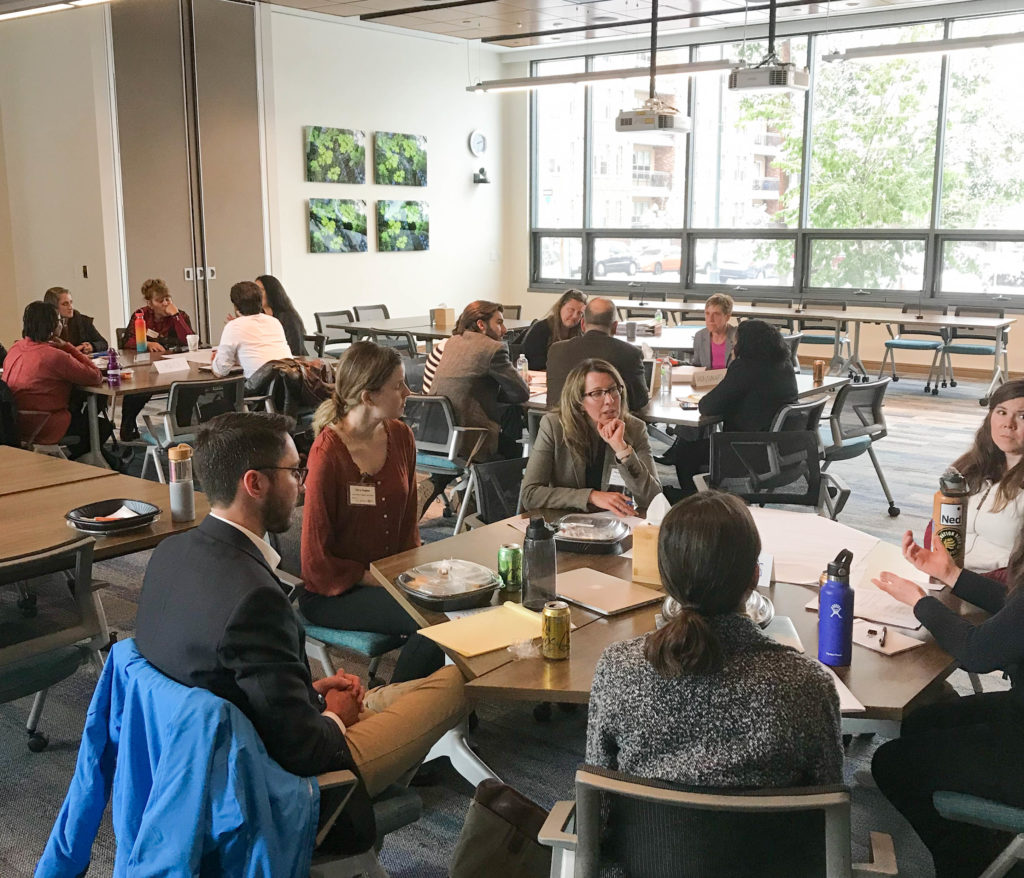
Enhancing Vision for Older Montbello Residents
According to the Latino Community Foundation, the Colorado Latino Age Wave (LAW) “is an initiative that supports the well-being of a rapidly growing Latino older adult population in Metro Denver through innovative services and programs.” Through a limited grant, the LAW awarded funding to MHHA to coordinate a vision testing and eyeglasses initiative for adults 65+, who reside in the Montbello neighborhood. As a result, MHHA is collaborating with the LAW Connectoras (Spanish-speaking connectors), to identify and refer eligible (un-insured) individuals to MHHA. The alliance monitors the initiative and is responsible for ensuring direct payment is made to the vendor, America’s Best. To date, the initiative has provided services to 20 individuals and anticipates serving additional residents, prior to the conclusion of the grant in 2020.
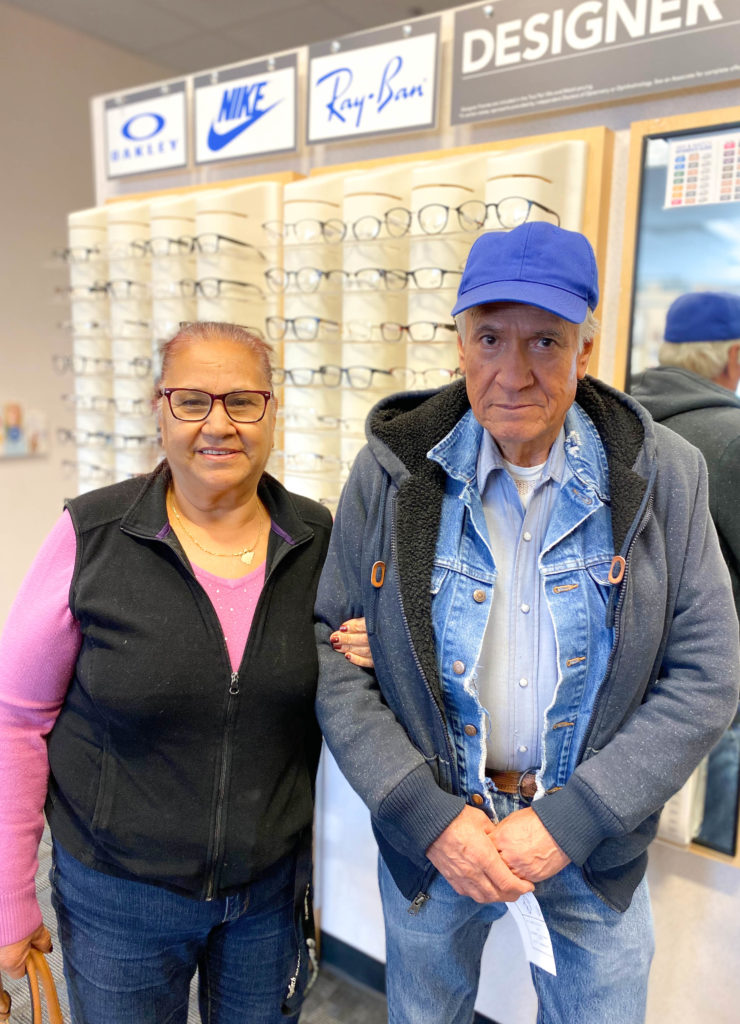
Specialty Care Update
After careful consideration, we have decided to revamp our Mile High Specialty Care SPAN working group. As we look towards the new year, we want to bring a diverse set of health experts as well as feasible action steps to address specialty care access. We are looking to relaunch at the beginning of January of next year. If you are interested or know of someone who is addressing specialty care access and would like to participate in the conversation, please reach out to Vicente Cardona @vicente@milehighhealthalliance.org.
Grant Updates
Department of Local Affairs Census Grant: The Mile High Health Alliance recently support for our 2020 Census outreach efforts through the funding appropriated by HB19-1239. Our workplan is already coming together, as we will need to move quickly in order to reach hard-to-count communities in Denver. Keep an eye out for an email from MHHA staff inquiring about how we can support our members and partner in their Census work. We have the capacity to provide collateral materials, training, education, and technical support.
Together We Count Mini-Grant: The Mile High Health Alliance received additional funding through a mini-grant from Together We Count. This money will join the DOLA funding in the census support pool to help us reach our program goals.
Support Mile High Health Alliance This Colorado Gives Day!
Regional Health Connector (RHC) Funding: The University of Colorado Department of Family Medicine has received approval to fund comprehensive practice transformation, including financial support to the RHC program. Each RHC region will be eligible to receive up to $30,000 for one year starting November 1, 2019, with the possibility of two additional years of funding.
The Mile High Health Alliance is a coalition of organizations committed to achieving better health through collaboration, working together to increase access to healthcare for the uninsured, underinsured, and Medicaid-insured residents of Denver. Donations through Colorado Gives Day will support our Medical-Legal Partnership, which connects patients who access care at safety-net clinics with legal services that can help address issues of housing safety and stability for individuals and families in our communities.
